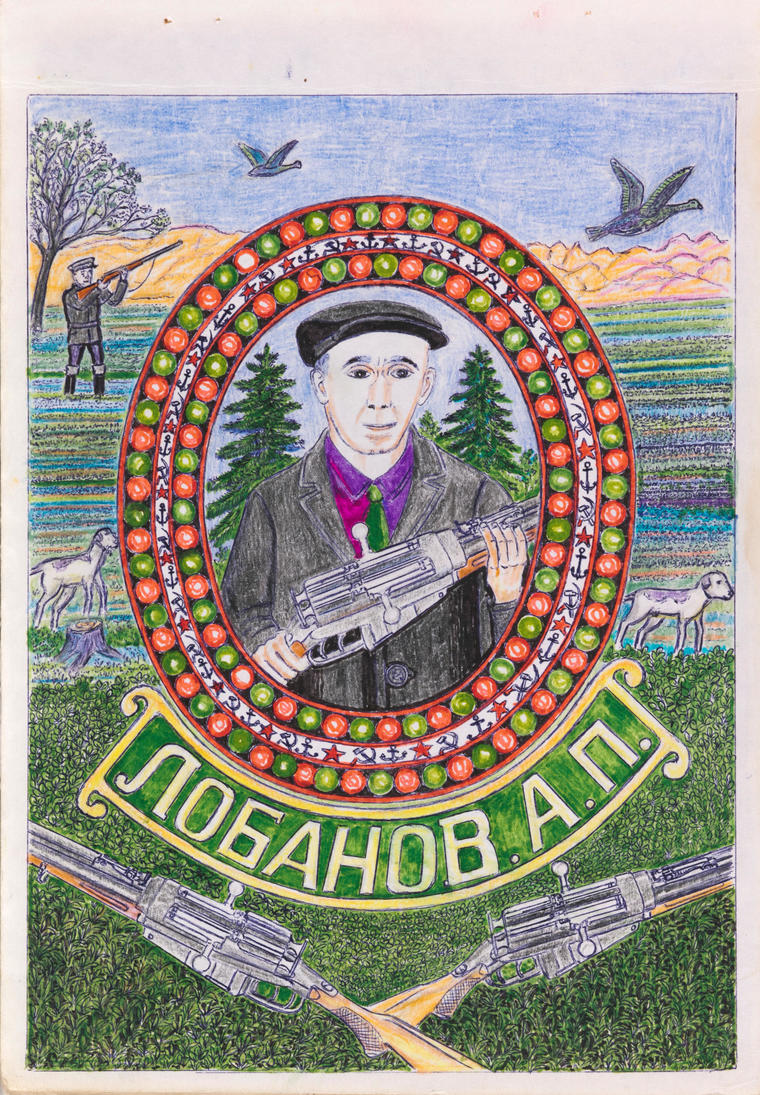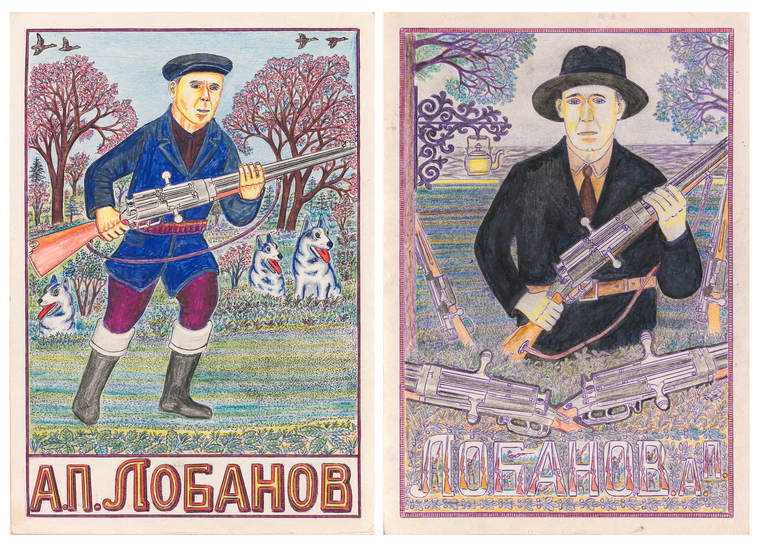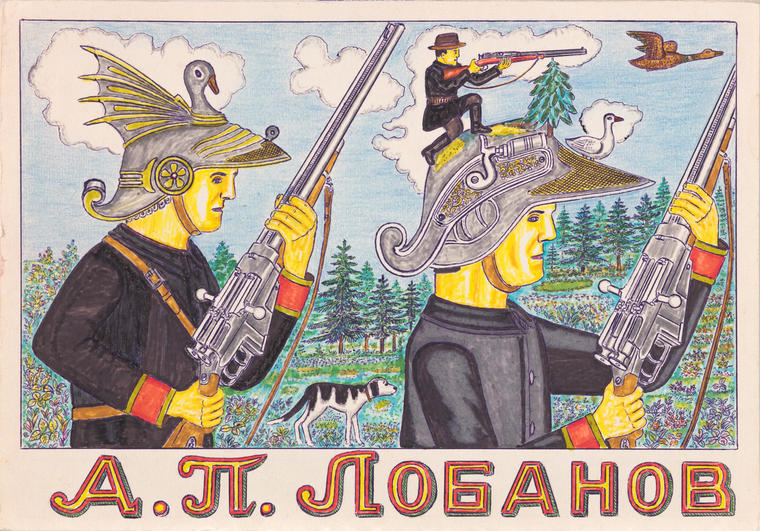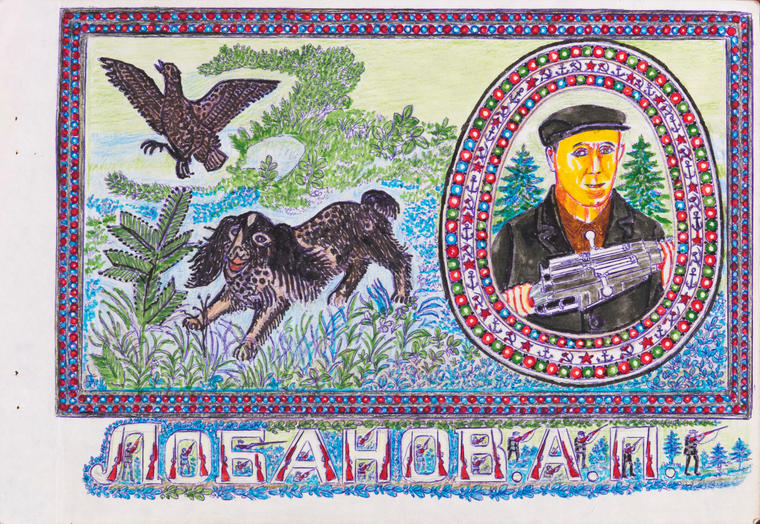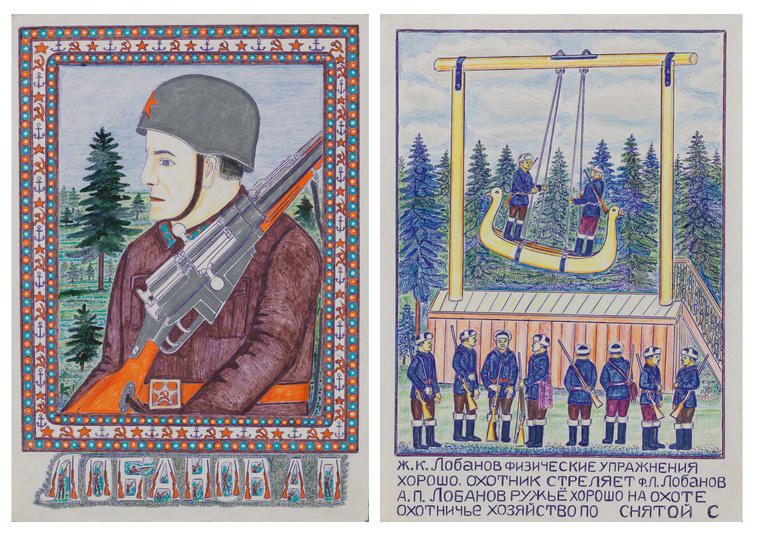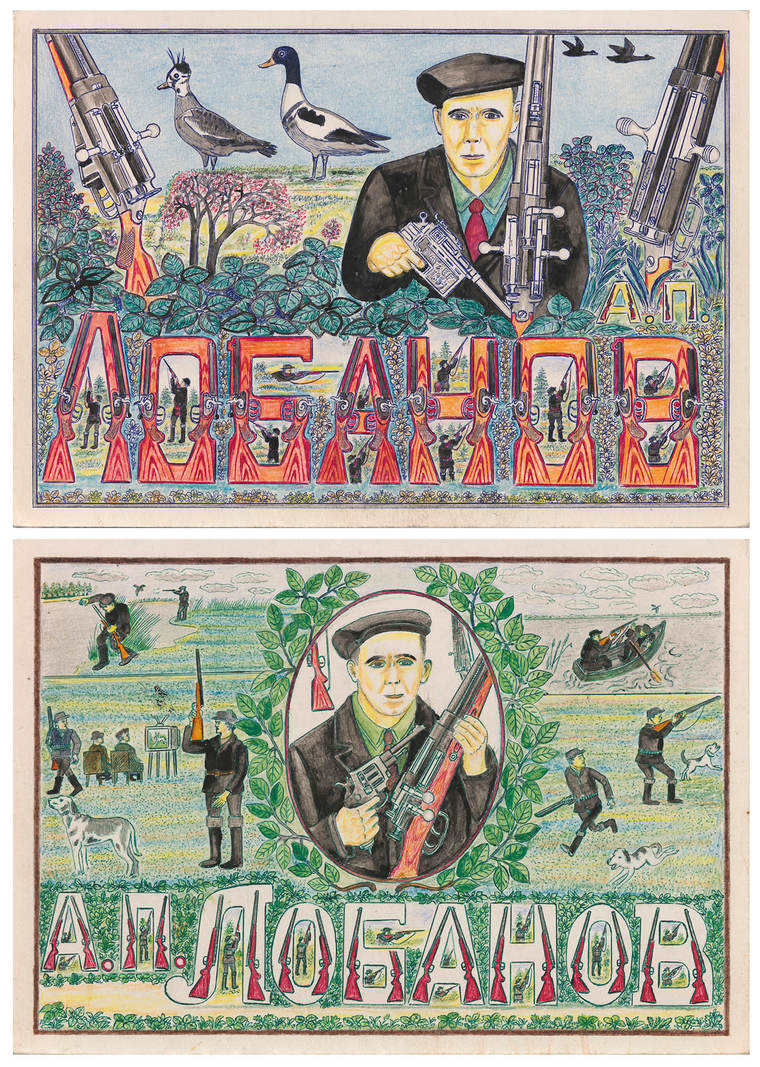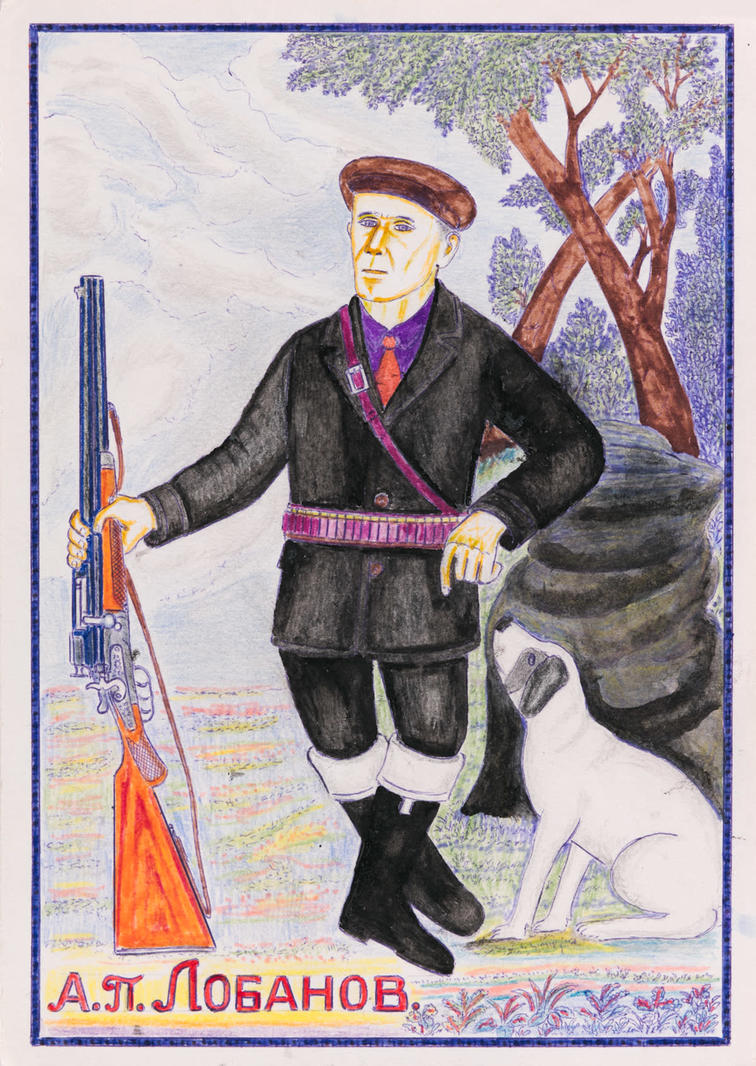
Alexander Lobanov is a man with tragic and at the same time happy biography. Since childhood, he had great health problems: meningitis, which caused deafness and dumbness, and then increased mental illness, led to the fact that from the age of 23 to the end of the days Lobanov spent his life in a psychiatric hospital. However, he found joy in drawing and even during his lifetime became a recognized outsider artist. He was in the full sense of the word «naive» artist: not only because he was self-taught, but also because of the child's perception of the world. Many of his drawings, often made on the back of the propaganda posters, have a rather limited iconography with a heap of fine and precise details, and his favorite method is the conclusion of an image in a decorative frame.
The main passion of this harmless man was the weapon. Never once holding it in his hands, the artist accurately reproduced the details of mechanisms and even «finished» the Mosin rifle, which he «was not allowed to play" during the World War II. In the first years of his passion for drawing, Lobanov portrayed the faces of the leaders, especially Stalin, in the decorative heroic and weapon surroundings, and from the 1970s he began to manically create self-portraits. He also had photographic self-portraits for which he specially drew and cut out frames and weapons from cardboard — and he was photographed with them in the atelier. This was due to a new stage in the recognition of himself as an individual, before that Lobanov called himself only in the third person.
Since the 1950's, the artist began to draw scenes and attributes of hunting. And there is an explanation for this: in his life there was a friend — the hospital driver Gennady, who took care of Lobanov, walked with him, drove shopping, invited home and enthusiastically talked about his favorite hunt in a language that was understood only by him and Lobanov. As can be seen in the presented drawing, the artist tries on the role of a hunter, thereby realizing his childish passion for weapons. He emphasizes the rifle especially, apart from all other elements. It is important that in Lobanov's works the weapon never shoots, and often turns into a purely decorative element. Compositionally, drawing refers us to the ceremonial portraits of the XVIII-XIX centuries, which Lobanov could see in the magazines. He portrayed himself in hunting gear, leaning against a huge rifle, of course, with a faithfully enamored dog at his feet. Before us a proud, strong man, his hair, it seems, is a little grayed, but he has not lost his state.V
